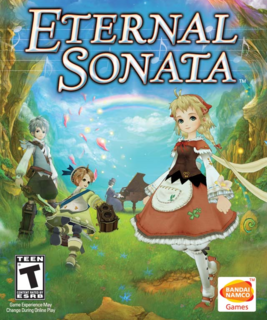An interesting premise, but unfortunately the plot doesn't feel as though it was fully developed.
To add to this problem was that the developer also took it upon itself to integrate various other themes of politics, power, betrayal, and love. Each of which the game mentions to some extent but fails to fully develop in either instance. Instead you get a plot that had a lot of potential but loses its impact because it fails to focus on a specific theme. Instead, the game dilutes all of its themes because it simply has too many of them.
That said the plot is not all bad. It is a fairly entertaining game. Unfortunately the plot makes too many flowery statements while failing to provide very adequate evidence of what it's saying as fact. It's one of those situations where you yourself can think of examples of what the game is trying to convey yet the game itself fails to do so. For example there is an instance where the game talks about mineral powder having a profound effect on citizens. First thing that comes to mind is cigarettes. Sometimes there's simply no need to develop made-up drugs in a game to get a point across. Use a real drug and the impact of your statements will hold so much more truth to them. Instead the game preaches through made-up circumstances and comes off a bit underdeveloped.
Off the plot, the game mechanics are solid. Expect a turned-based version of the Tales of Symphonia system. It's fun, but can be a bit repetitive due to the consistent use of a limited number of spells and combat moves. The speed and presentation of the battles do a lot to overcome this deficiency. Leveling up is very fast-paced as you will find your characters leveling up twice off of one boss battle.
The length is short for an RPG at 30 hours max. Side-quest are in short supply and the dungeons tend to be beautiful but repetitive room-to-room. Towns are brief. The graphics however are amazingly crisp and beautiful. The music is good, and the voice-acting is well done also. Ultimately this is a game that constitutes a solid premise, but fails to develop into the gem that it potentially could have been.

